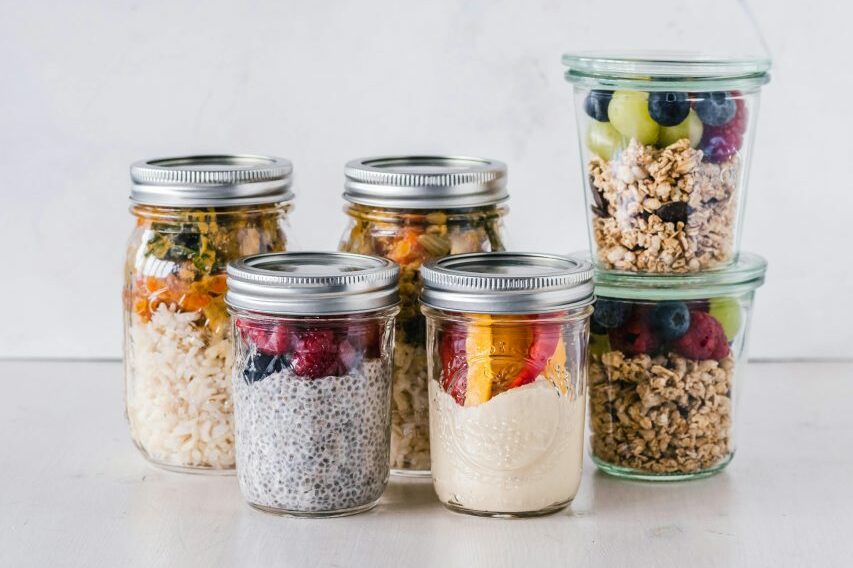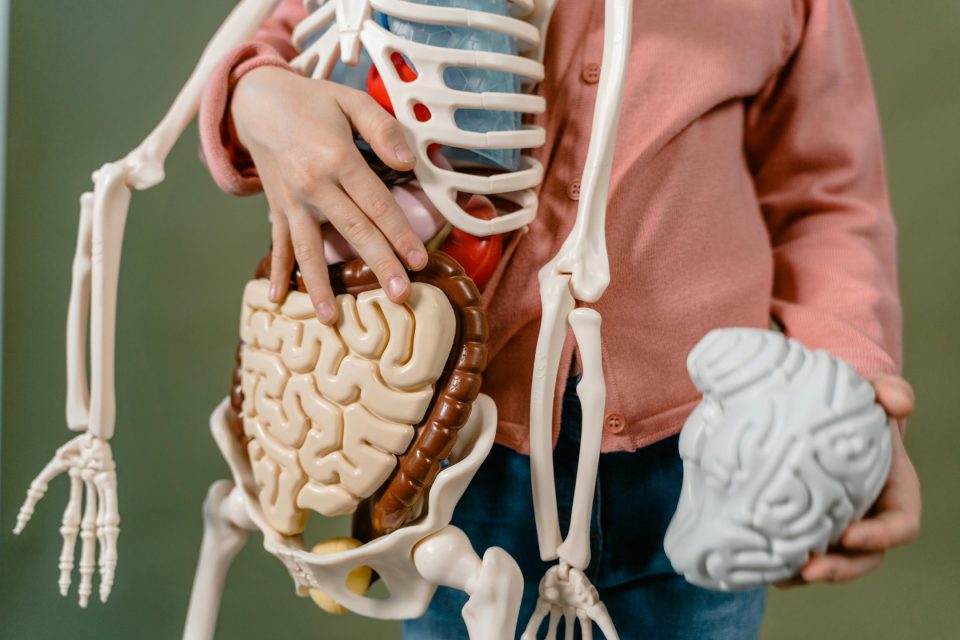Your stomach might not be the first culprit you think of when you experience a mood swing. But there might be a stronger connection between your gut and mind than you think and food can affect your state of mind more than we are aware of…
The belly and the brain are connected by something scientists call the gut-brain axis—a kind of communication system that exists between these two vitally important parts of the human body. The intestine’s peripheral activities have the ability to influence the nervous system and the brain’s cognitive and emotional regions, resulting in a mental-metabolic synergy that everyone possesses.
Learning about the gut-brain axis and eating the right foods can have a direct impact on your state of mind, mood, and cognitive acuity, culminating in a more holistic sense of full-bodied wellbeing.
The gut and brain are intrinsically connected
Just about all of the body’s systems are connected in some way or another. The circulatory system and the respiratory system, for example, are two of the most symbiotic systems in the body, as are the nervous system and the lymphatic system.
However, two other core systems whose connections are evident in a variety of ways are those of the metabolic system and the brain—or the gut and the mind.
The gut-brain axis is a complex network of nerves, proteins, and hormones that connect your digestive tract to your brain. The endocrine system, which is closely connected to the digestive system, produces neuro signals that communicate core human phenomena such as hunger, stress, and fullness.
This, in turn, can influence our emotional and mental states by triggering sensations within the metabolic tract.
Another factor that connects the gut and the brain is the vagus nerve. The vagus nerve is the primary link between the enteric system and the brain and forms part of one of the twelve cranial nerves, all of which convey essential sensory information about the condition of your gut to your brain.
How does food affect your state of mind?
There are many reasons why food and the gut biome can affect your mood and state of mind. Firstly, you have the vagus nerve that funnels important signals and sensory information between the stomach and the brain.
Then you have the aspect of diet to consider. Food is our body’s natural way of receiving energy and nutrients to function. The kind of food we consume, in addition to how frequently we consume it, can have a direct effect on our mood stability, cognition, and emotions.
This is because the nutrients, minerals, and proteins we consume, as well as the bacteria that accompany them, influence a wide range of cognitive, physical, and emotional functions, such as stress, excitement, libido, relaxation, shock, and depression.
There are common parallels between mental health and intestinal issues, such as how Irritable Bowel Syndrome (IBS) frequently overlaps with anxiety or depressive disorders.
Additionally, it’s important to note that the gut contains many serotonin receptors. That means the food we eat and the overall conditions of our digestive system can vastly influence how easily we can produce essential mood-stabilising hormones, such as serotonin, dopamine, and oxytocin.
Which foods promote a healthy gut-brain connection?
Filling your plate with foods that promote a healthy gut-brain connection is one of the best ways to ensure that your mood is regulated consistently, naturally, and sustainably. Unless you have a mental or medical condition, you can use diet as a simple tool for managing (or at least supporting) mood swings.
You can also implement different eating habits, such as intermittent fasting, which can offer numerous benefits for your gut and overall health. This way of eating is associated with positive gut microbiome changes that may promote lasting weight loss, improved weight maintenance, and an increase in overall physical wellbeing.
Many incredible foods contain the right nutrients, vitamins, and probiotics needed to feel good, have enough energy, and regulate your emotions on an endemic level.
Four core food groups are needed to achieve this goal: fermented foods, omega-3 rich foods, high fiber foods, and foods containing polyphenols.
Fermented foods
Gut bacteria affect brain health, and good gut bacteria can be found in fermented foods rich in probiotics, sometimes called psychobiotics when referred to in connection with the brain.
Consuming enough probiotics has been shown to reduce stress levels, improve energy levels, and even mitigate the symptoms of depression. You can find probiotics in all sorts of delicious fermented foods, including:
- Miso
- Sauerkraut
- Yoghurt and kefir
- Kombucha
- Kimchee
All these tangy, often well-aged fermented foods are high in probiotics, making them a super gut-healthy product that can play a crucial role in regulating your gut biome and promoting a balanced mood.
Omega-3
Omega-3s are polyunsaturated fatty acids that give your body energy and promote the functionality of the endocrine and immune systems. You can find them in fatty fish, such as mackerel, sardines, salmon, chia seeds, and walnuts.
When your digestive tract absorbs enough omega-3s, it promotes brain cognition and functionality, helping you make clearer decisions and alleviating the symptoms of depression.
High fibre foods
Fibre-rich foods are essential for maintaining a healthy metabolic system and ensuring that your bowel movements are consistent. These foods keep things moving and contribute to a stronger, more disease-resistant digestive system, which, in turn, promotes a strong enteric and nervous system.
Some of the best sources of fibre include pulses like lentils, barley, sorghum, oats, fatty avocados, beans, nuts, and sprouts.
Polyphenols
Polyphenols are micronutrients found in plants, many of which are edible and delicious. Some of the most common sources are blueberries, apples, cumin seeds, chili peppers, dark chocolate, and flax seeds. By consuming enough polyphenols, your gut can effectively absorb all the nutrients it needs to support brain health and overall physical and mental wellbeing.
Eat for health and happiness
The gut and the brain are fundamentally intertwined via the vagus nerve, the enteric system, and the nervous system, all of which influence how our bodies process important sensory information such as anxiety, hunger, shock, stress, and fullness.
Eating the right foods and cultivating a broader knowledge of the gut-brain connection can help achieve a more consistent mood and state of mind.












